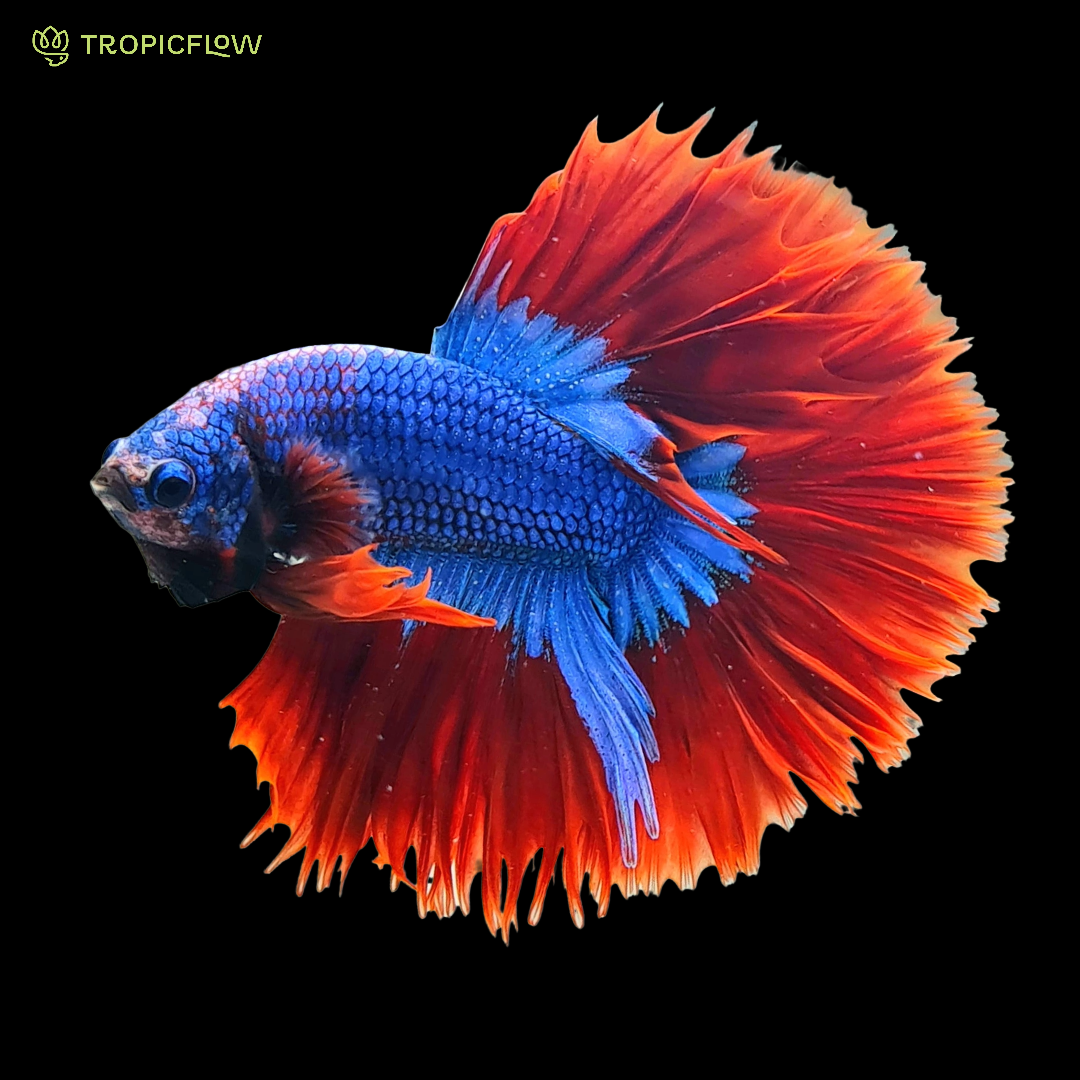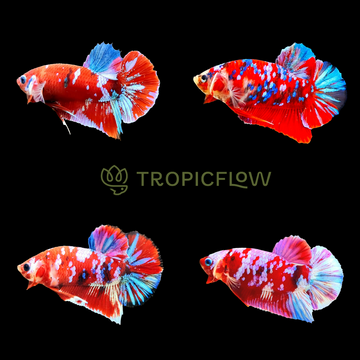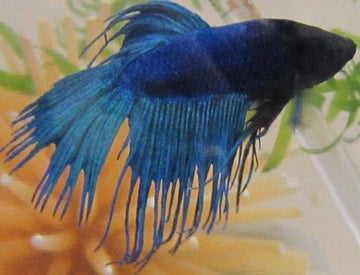Hi, can you ship to UK please?
7 Reason Betta Fish Laying On The Bottom of The Tank With Solution

Overview

Betta fish, known for their vibrant colors and graceful fins, are a popular choice among aquarium enthusiasts. These striking fish can make wonderful pets, but like any living creature, they may occasionally exhibit unusual behavior. One concerning behavior for betta fish owners is when they seem to be constantly resting or laying at the bottom of the tank. This behavior can be indicative of an underlying issue that needs your attention. In this article, we'll explore seven possible reasons why your betta fish might be laying on the bottom of the tank and how to address each one.
Betta Fish Illness

If your betta fish is lying on the bottom of the tank and showing other signs of illness, such as lethargy, loss of appetite, or abnormal swimming behavior, it is possible that it has contracted an infection or parasite. Some common illnesses in betta fish include fin rot, ich, and Columnaris. In these cases, it is important to seek veterinary care and to follow recommended treatments to help the fish recover.
Solution: Quarantine the sick betta to prevent the spread of disease to other tank mates and consult with a veterinarian or an experienced fish hobbyist to identify and treat the specific ailment. Medications, water treatment, and isolation may be necessary to help your betta recover.
Overheating
Betta fish are tropical fish and require a water temperature between 76-82°F (24-28°C). If the water in the tank is too warm, it can cause the fish to become sluggish and lie on the bottom to cool down. Make sure to monitor the water temperature regularly and use a thermometer to ensure it remains within the recommended range.
Solution: Maintain a consistent water temperature between 76-82°F (24-28°C) using a quality aquarium heater. Avoid placing the tank in direct sunlight or near drafts, as these can lead to temperature fluctuations.
Water quality

Poor water quality can cause stress and illness in betta fish. High levels of ammonia, nitrite, or nitrate can be toxic to the fish and cause them to become sluggish and rest on the bottom of the tank.Regular water changes and proper filtration are essential for maintaining good water quality. Test the water regularly and perform water changes as needed to keep the levels of ammonia, nitrite, and nitrate within safe limits.
Solution: Regularly test the water parameters in your betta's tank, including temperature, pH, ammonia, nitrites, and nitrates. Ensure the water quality is within the ideal range for betta fish. Perform routine water changes (usually 25-30% of the tank volume) to maintain a healthy and stable environment.
Fatigue

Betta fish are active fish that need plenty of hiding places and spaces to rest in their tank. If the tank is too small or lacks adequate hiding spaces, the fish may become tired from swimming and rest on the bottom.
Solution: Ensure that the tank is located in a quiet area with minimal disturbances. Provide plenty of plants, caves, and hiding spots for your betta to retreat to when it feels threatened. If necessary, consider changing the tank's decor to make it more suitable for your betta's comfort.
Old age
As betta fish age, they may become less active and spend more time resting on the bottom of the tank. This is a natural part of the aging process and is not necessarily a cause for concern. However, it is important to continue to provide good care and maintain good water quality to ensure the health and comfort of your aging betta fish.
Solution: There's not much you can do to reverse the effects of aging in betta fish. However, you can continue to provide excellent care by maintaining water quality and ensuring their environment is suitable for their changing needs.
Overcrowding
Betta Fish Community Tank
Overcrowding the tank with too many fish or other tank mates can stress betta fish and lead to submissive behaviors, such as staying at the bottom of the tank. Bettas are often territorial and can become aggressive towards other fish, especially other male bettas. It's crucial to provide them with adequate space.
Solution: If your betta shares the tank with other fish, ensure it's appropriately sized and that the tank mates are compatible. A tank of at least 5 gallons is recommended for a single betta. Remove any aggressive tank mates and provide hiding spots and plants to create territories within the tank.
Food Diet

A betta's diet is crucial for its overall health and vitality. If you are not providing the right nutrition or overfeeding, it can lead to digestive issues or constipation, causing the fish to lay at the bottom in discomfort.
Solution: Feed your betta a well-balanced diet of high-quality betta pellets or flakes and occasional treats like frozen or live foods. Be mindful of portion sizes and avoid overfeeding. Consider incorporating high-fiber foods, like daphnia, to help prevent constipation.
Drawing from our experience, bloodworms stand out as the optimal food source for betta fish. They contribute to a balanced diet, promote overall health, and have minimal impact on water quality.
Where to buy a healthy betta fish
Tropicflow stands as a reliable brand for tropical fish enthusiasts. Explore our extensive selection of betta fish, including halfmoon, plakat, and female bettas. Start shopping now to welcome home the most healthful and stunning betta fish.
Conclusion
In conclusion, if you observe your betta fish lying on the bottom of the tank, it is important to assess the water parameters, temperature, and tank setup, and seek veterinary care if necessary. Regular monitoring and proper care can help prevent and address these issues and ensure the health and happiness of your betta fish.
Very helpful blog!!! Now I got more information about betta fish. thank you!







2 comments